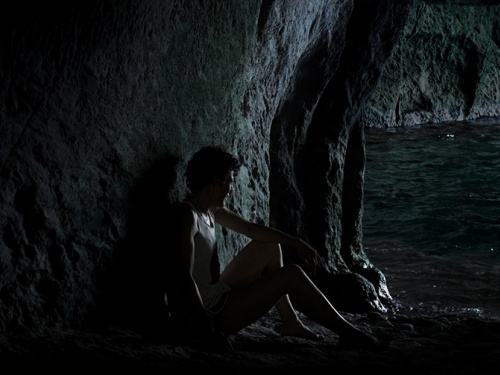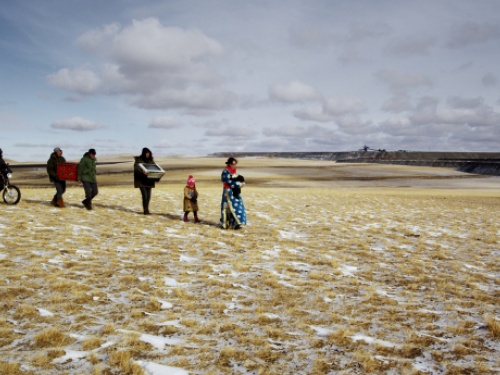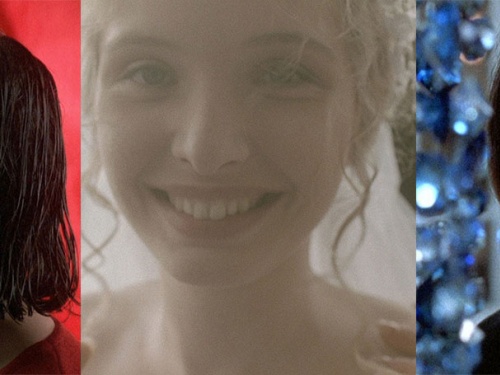Frames of Representation: Documentary as Therapy
Film critic Wendy Ide discusses Paweł Łoziński's film You Have No Idea How Much I Love You, screening on 25 April as part of Frames of Representation film festival.
If documentary filmmaking is a journey, more often than not it is the filmmaker who is the guide. That's not to say that director is always propelling us along a pre-ordained path. The most satisfying films are those which encourage both the subjects and the audience to walk, freely, a route which they hadn't expected to tread. Documentary can be therapy for all involved. The camera for the subject and the screen for the viewer both, partially at least, serve the same purpose – acting as a mirror which reflects back truths newly illuminated by the film.
But in You Have No Idea How Much I Love You, the painfully intimate study of an estranged mother and daughter trying to come to terms with their difficult relationship, director Paweł Łoziński relinquishes the guiding role. Instead, eminent family therapist Professor Bogdan de Barbaro is the person who leads the subjects (and viewers) through the treacherous terrain of the parent-child relationship. Is it an abnegation of power or responsibility on the part of the filmmaker? Or an astute move that gives the film a solid foundation of authenticity, whatever else is revealed?
Documentary can be therapy for all involved.
This is not Łoziński's first exploration of the relationship between parent and child. And perhaps the fact that he turned to de Barbaro for this study of the subject was prompted by his previous experience. Ojciec i syn (Father and Son) was an account of a journey to Paris that Łoziński took with his father, fellow documentary filmmaker Marcel Łoziński. It is an acclaimed work which, along with a sister project edited by his father and titled Father And Son On A Journey, won numerous prizes. But Łoziński later expressed reservations about the project as a psychological experiment, observing that it didn't solve the existing problems between him and his father.
Much of the potency of You Have No Idea How Much I Love You comes from the presence of Bogdan de Barbaro at its core. However acute the waves of emotional pain from mother Ewa and daughter Hanna, there is something profoundly satisfying about watching this skilled professional at work. His mediation affords a protection for the subjects, creating a safe space which permits them to strip back the layers that encase them. It also mitigates a level of exposure in Ewa and Hanna which, without his presence in the film, could be regarded as exploitative. In a way, the therapist and his process becomes as much the subject of the film as the two women groping through a lifetime of accrued grudges to find some common ground.
In a way, the therapist and his process becomes as much the subject of the film as the two women
There is an intimacy in the shooting method – each chapter of the film takes place entirely within the four walls of an anonymous treatment room; the camera is tight on each face, one at a time, scrutinising for the chinks in the emotional armour. But this intimacy never feels forced – de Barbaro's calming presence is an embrace which draws us into the film. De Barbaro's therapeutic methods give lie to the belief that it is by our actions not our words that we are judged. Here, in this precarious dynamic, words are of paramount importance. De Barbaro will frequently pause and hold aloft a hastily chosen blunt weapon of an adjective and tease out its meaning and connotations. Important to the process is the fact that he permits the word to be retracted and rephrased, softening and healing the wounds that an ill-chosen phrase can deliver. By insisting that the women address him and not each other, he acts as a filter, expertly and insightfully stripping away the anger and the anguish to reveal the truths beneath.
But what of these truths, in a film which finally calls into question the validity of the emotional journey on which we are invited? Here again de Barbaro is crucial. He is the film's anchor to something unassailable and solid. And if we learn one thing from his process it is that in order to get to the truth, we must accept and understand the fictions that are created around it.
You Have No Idea How Much I Love You screens on 25 April followed by a Q&A with the director hosted by Wendy Ide.
This article is posted in: Articles, Events, Film
Tagged with: Frames of Representation, FoR17, Cinema, Documentary Cinema, Wendy Ide








